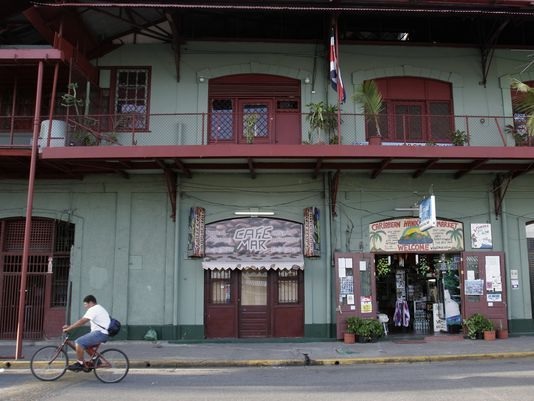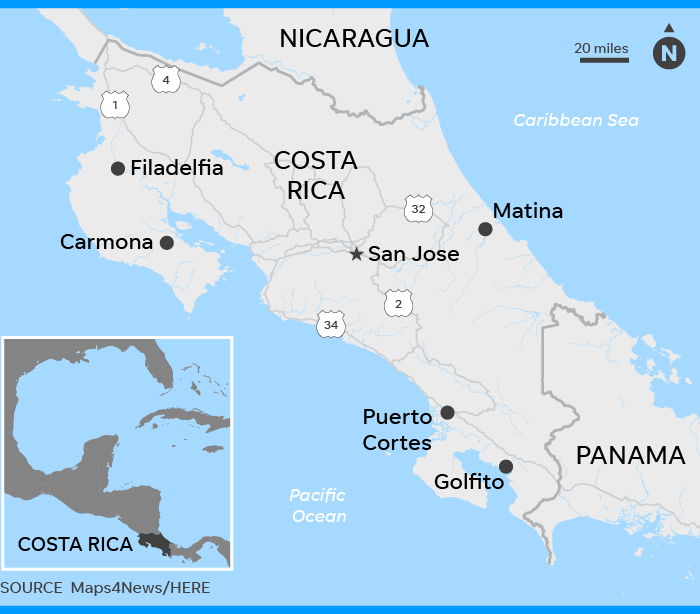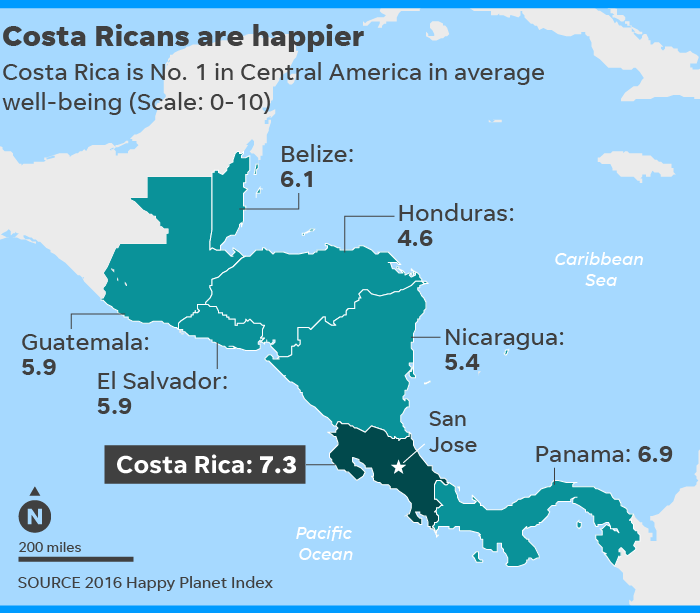by Amanda Trejos, January 4, 2018, USA TODAY.

Guatemala, Honduras and El Salvador are plagued by chronic poverty and violence that have sent a flood of refugees fleeing to the United States. Panama has gained the unwanted title as a world capital for money laundering and corruption. And all of them, plus Nicaragua, face recurrent political upheaval.
Yet amid this chaos, one Central American neighbor remains an island of political stability, economic prosperity and contentment: Costa Rica.
The country’s secret is something that virtually no other country in the world can claim — no standing army. It has used the savings from defense spending to improve education, health care and a durable social safety net.
In 2018, Costa Rica will mark its 70th anniversary since it abolished its military, and that seems to suit the population. It ranked first in Latin America and 12th in world in happiness, according to the 2017 World Happiness Index. The Happy Planet Index ranked it No. 1 in the world.
This tropical country, home to the greatest density of species in the world, takes pride in its ecologically friendly policies that attract tourists to its lush jungles. It also enjoys a standard of living that is about double that of other Central American nations except for Panama, which profits from the Panama Canal.
Costa Rica’s experiment without a military began in 1948, when Defense Minister Edgar Cardona proposed the idea to spend more for education and health, according to former Interior minister Alvaro Ramos.
José Figueres, provisional president at the time, took the proposal to the constitutional assembly, which approved it. Instead of a permanent armed forces, the assembly created a new civil police force to defend the nation.
Ramos, 62, said the change led to many advances for Costa Rica, especially in the 1950s and ’60s. “The standard of living of the sick, rural society went up, (and) we built big hospitals, but most importantly, there was a massive education boost,” he said.
Costa Rica leads the Latin American and Caribbean region in health and primary education, having the second lowest infant mortality rate after Chile and a 98% literacy rate, according to the 2016-17 Global Competitiveness Report.

The country also provides universal health care to its citizens and permanent residents. The World Health Organization ranks Costa Rica as having the best health care system in Central America and 36th best in the world.
Costa Rica has a history of presidential support for peace and conflict resolution without violence. Former president and Nobel Peace Prize laureate Oscar Arias claims that negotiation is the best way to avoid confrontation.
“Military solutions to conflicts should be the last, last resort,” he said. “Here, conflicts are resolved at a negotiating table.”
Arias, 77, received international attention during his first presidential term in 1986 for his efforts to end major civil wars and pro-communist revolutions in several Central American countries.
“In 1986, the fundamental theme of my political campaign was to look for a diplomatic solution negotiated in Central America,” said Arias.
He said the Reagan administration was “obsessed” in the 1980s with supporting Nicaragua’s Contras, the right-wing rebel group that opposed the socialist Sandinista government. Arias rejected President Ronald Reagan’s military option and instead searched for a pacifist solution.
Arias received the Nobel in 1987 for leading a peace plan with Central American heads of state to agree on economic cooperation and a peaceful resolution to that conflict.
“In every negotiation you obtain what you can, not what you want,” Arias said. “We have in our hands the future of Central American youth, and we cannot fail them.”

Arias criticized the United States for being a country that loves war and solves its conflicts through violence, “The United States doesn’t even try,” he said.
Costa Rica remains a peaceful nation despite the continuing violence in neighboring countries. The border between Costa Rica and Panama became the only non-militarized frontier in the world after Panama followed Costa Rica’s example and abolished its military in 1989.
Ramos pointed to this as an example for the world, especially since these two countries are in a region riddled with violence from drug trafficking and organized crime. According to Ramos, the absence of a military is the reason behind peaceful relations between Costa Rica and Panama.
Eva Lahnmann, a Costa Rican working in Denver as a case manager at Clinica Familia Health, feels pride in being from a country without a military. “I see it with my friends who live in Mexico and Venezuela,” said Lahnmann, 23. “They live in constant fear, and having a military adds to this fear.”
“I cannot relate to this because the life we have in Costa Rica is so peaceful, so happy,” she added.
Lahnmann admits that Costa Rica is not a paradise, noting there is still crime and poverty. Yet she is grateful to grow up in a mostly peaceful society.
“My mother can sleep at night,” Lahnmann said. “Just like that famous expression, ‘Blessed is the Costa Rican mother who knows her son at birth will never be a soldier.’”








